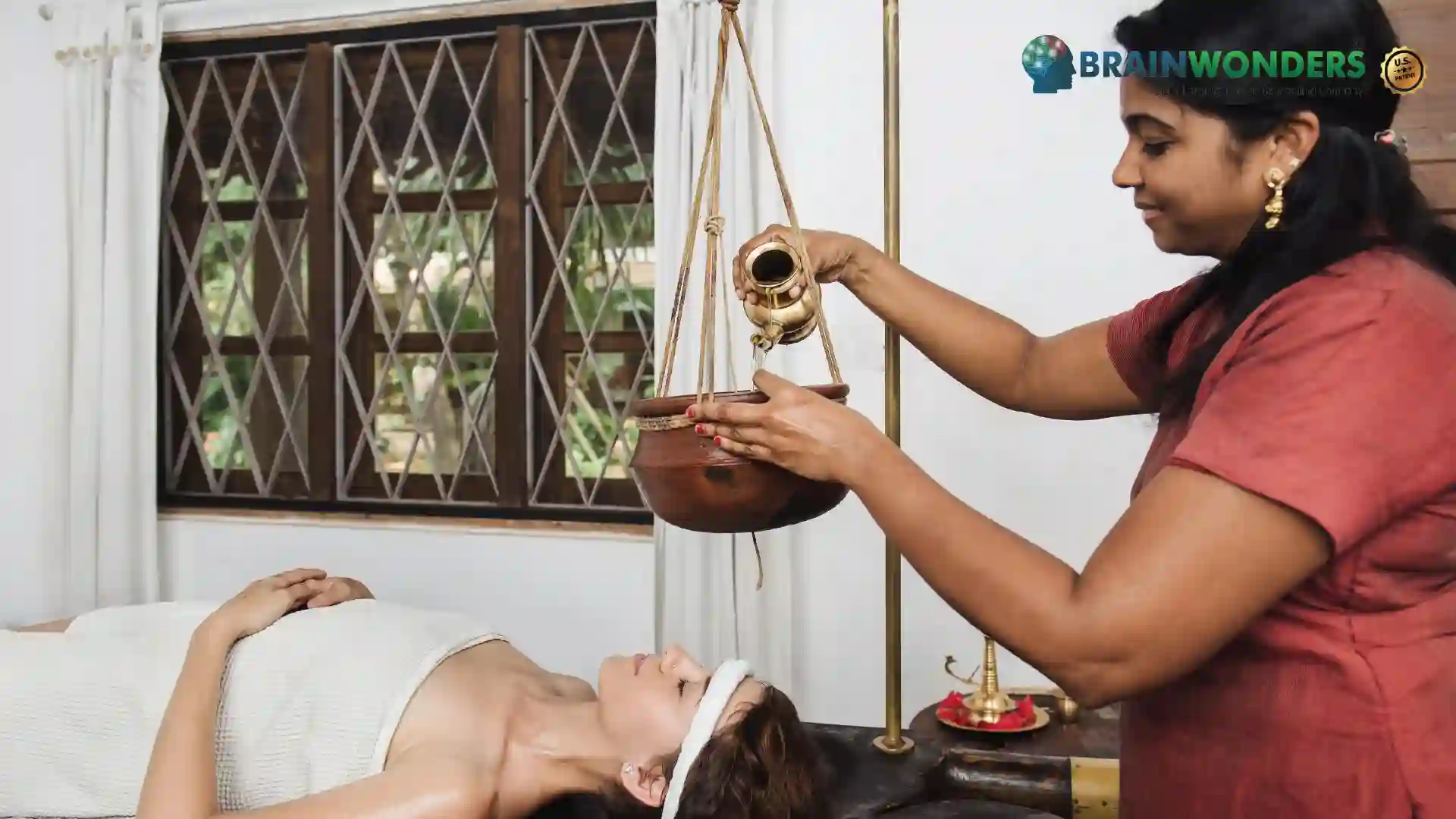How to become an Unani Doctor
Overview, Courses, Exam, Colleges, Pathways, Salary

Overview
Who is Unani Doctor ?
After Allopathy, Ayurveda and Homeopathy, Unani is recognized as the fourth popular treatment system. Unani is the alternative-medicine system where patients are cared for by improving the human body's natural healing energy. Unani 's concept is that because of its self-healing energy, the body revitalizes itself. The human body has four components, as per the Unani system, such as the blood, yellow bile, phlegm and black bile. This is analogous to the Ayurveda, with respect to the four elements and as famous as the Ayurveda. In Unani Medicine the career prospects are tremendous. Unani Doctor’s profession requires much hard work but is extremely rewarding. Unani Medicine offers a safe and cost-effective cure with negligible side effects in a society where increasing difficulties have given rise to several illnesses and where the deprived and needy people cannot afford costly treatment.
Typical day at work
What does Unani Doctor do?
Job description, Profiles, Roles and Duties:
- Tackling disease prevention and treatment
- Treat conditions with herbal formulas that contain several natural substances
- Reply to medical problems of patients by studying their history, treatment, diagnosis, counselling and referral, where needed
- Request laboratory tests and interprets the findings
- Preserve confidentiality and neutrality at all times
- Gather, record and preserve sensitive information about patients, like test results, history and reports
- Describe processes or recommended treatments to patients
- Network with community and hospital medical practitioners
- Promoting health awareness in combination with other health practitioners
- Conduct minor surgeries
- Meet government-set targets for specific treatments, for example, childhood immunization
- Confer and analyze novel pharmaceutical products with pharmaceutical representatives
- Stay up to date with the medical, diagnosis, and drug innovations.
- Monitor and evaluate the work of trainee physicians and medical students
- Supervises medical assistants to make sure that all relevant rules are met
- Assess the effectiveness of existing treatment practices and strategies and recommend changes
Abilities and Aptitude needed
What are the skills, abilities & aptitude needed to become Unani Doctor?
- In addition to medical school graduation and certification, Unani doctors do require basic soft skills to excel in this profession. An Unani doctor must wish to help. While some options in this arena don't include working one-on-one with patients, most research is motivated by a desire to serve people.
- Upon determining the symptoms of a patient and reaching a diagnosis, doctors must choose a suitable treatment. To do this you would need problem-solving and critical thinking abilities to relate options available.
- Excellent listening skills assist the doctors to better gauge the symptoms and worries of their patients. You require developed verbal communication abilities to clarify diagnosis to patients and their families and provide nurses and other staff with guidance and updates on treatment.
- Unani Doctors need to be careful about and reply suitably to fluctuations in the patient’s condition. These can involve everything from long-term changes in daily patients to short-term changes in healing patients from a particular treatment or illness.
Pathways
How to become an Unani Doctor?
Entrance Exam
Entrance Exam for Unani Doctor ?
Courses
Which course I can pursue?
Best Colleges
Which are the best colleges to attend to become an Unani Doctor?
Industries
Which Industries are open for Unani Doctor?
Unani doctors, also known as Hakims, specialize in the Unani system of medicine, a traditional system originating from ancient Greece. While Unani doctors primarily practice in healthcare settings that specifically offer Unani medicine, there are several industries where Unani doctors can find opportunities:
- Unani Hospitals and Clinics: Unani doctors commonly practice in Unani hospitals and clinics, providing holistic healthcare services based on the principles of Unani medicine. These facilities diagnose and treat various diseases and disorders using herbal remedies, dietary modifications, and other natural therapies.
- Ayurvedic and Alternative Medicine Centers: Unani doctors may find opportunities in centers that offer a combination of Ayurvedic, Unani, and other alternative medicine practices. These centers cater to individuals seeking holistic healthcare and traditional healing approaches.
- Integrative Healthcare Facilities: Integrative healthcare centers aim to combine conventional medicine with complementary and alternative therapies. Unani doctors can work alongside practitioners of other modalities, such as naturopathy, acupuncture, and traditional Chinese medicine, to provide comprehensive patient care.
- Wellness and Spa Industry: Unani doctors may be employed in wellness centers and spas emphasizing holistic well-being. They can provide consultations and treatments focusing on stress management, rejuvenation, and maintaining overall health using Unani principles.
- Research and Academia: Unani doctors passionate about research and education can explore opportunities in research institutions, universities, and teaching hospitals. They can contribute to the development of Unani medicine by conducting research studies, writing publications, and training future generations of Unani practitioners.
- Pharmaceutical and Herbal Medicine Companies: Unani doctors can work in the pharmaceutical industry, particularly in companies that manufacture herbal medicines or produce Unani-specific formulations. They can contribute to product development, quality control, and scientific advisory roles.
- Public Health Organizations: Unani doctors can work with public health organizations, non-governmental organizations (NGOs), and government agencies to promote public health initiatives, traditional medicine integration, and community health awareness programs.
- Medical Tourism: Unani doctors may find opportunities in the growing field of medical tourism. They can work in facilities that cater to international patients seeking Unani medicine, combining treatment with cultural experiences and tourism activities.
- Self-Employment and Private Practice: Some Unani doctors establish their private practice, offering consultation services, herbal remedies, and Unani treatments. It allows for flexibility and independence in managing patient care.
internship
Are there internships available for Unani Doctor?
Unani doctors, also known as Hakims, specialize in the Unani system of medicine, a traditional system originating from ancient Greece. While Unani doctors primarily practice in healthcare settings that specifically offer Unani medicine, there are several industries where Unani doctors can find opportunities:
- Unani Hospitals and Clinics: Unani doctors commonly practice in Unani hospitals and clinics, providing holistic healthcare services based on the principles of Unani medicine. These facilities diagnose and treat various diseases and disorders using herbal remedies, dietary modifications, and other natural therapies.
- Ayurvedic and Alternative Medicine Centers: Unani doctors may find opportunities in centers that offer a combination of Ayurvedic, Unani, and other alternative medicine practices. These centers cater to individuals seeking holistic healthcare and traditional healing approaches.
- Integrative Healthcare Facilities: Integrative healthcare centers aim to combine conventional medicine with complementary and alternative therapies. Unani doctors can work alongside practitioners of other modalities, such as naturopathy, acupuncture, and traditional Chinese medicine, to provide comprehensive patient care.
- Wellness and Spa Industry: Unani doctors may be employed in wellness centers and spas emphasizing holistic well-being. They can provide consultations and treatments focusing on stress management, rejuvenation, and maintaining overall health using Unani principles.
- Research and Academia: Unani doctors passionate about research and education can explore opportunities in research institutions, universities, and teaching hospitals. They can contribute to the development of Unani medicine by conducting research studies, writing publications, and training future generations of Unani practitioners.
- Pharmaceutical and Herbal Medicine Companies: Unani doctors can work in the pharmaceutical industry, particularly in companies that manufacture herbal medicines or produce Unani-specific formulations. They can contribute to product development, quality control, and scientific advisory roles.
- Public Health Organizations: Unani doctors can work with public health organizations, non-governmental organizations (NGOs), and government agencies to promote public health initiatives, traditional medicine integration, and community health awareness programs.
- Medical Tourism: Unani doctors may find opportunities in the growing field of medical tourism. They can work in facilities that cater to international patients seeking Unani medicine, combining treatment with cultural experiences and tourism activities.
- Self-Employment and Private Practice: Some Unani doctors establish their private practice, offering consultation services, herbal remedies, and Unani treatments. It allows for flexibility and independence in managing patient care.
Career outlook
What does the future look like for Unani Doctor?
The future for Unani doctors, also known as Hakims, is influenced by several factors that shape the career outlook for this medical specialty:
- Growing Demand for Alternative Medicine: There is a rising interest in holistic and natural approaches to healthcare, including traditional systems of medicine like Unani. As a result, the demand for Unani doctors is expected to grow, particularly among individuals seeking alternative treatment options.
- Integrative Medicine Approach: Unani medicine is increasingly integrated into mainstream healthcare practices. The future for Unani doctors looks promising as they can collaborate with conventional medical practitioners, participate in integrative medicine centers, and contribute to patient-centered care with a holistic approach.
- Research and Innovation: Ongoing research and innovation in Unani medicine contribute to its growth and acceptance. Unani doctors who actively engage in research, clinical trials, and evidence-based practice can contribute to advancing the field and enhancing career prospects.
- Global Health Initiatives: Unani doctors can play a significant role in global health initiatives by offering their expertise and traditional healing approaches. Opportunities may arise through collaborations with international organizations, participation in medical missions, and addressing health disparities in underserved communities.
- Wellness and Preventive Care: The emphasis on wellness, preventive care, and lifestyle medicine presents opportunities for Unani doctors to promote healthy living, provide dietary advice, and offer natural remedies that align with the principles of Unani medicine.
- Entrepreneurship and Private Practice: Unani doctors can establish their private practice or wellness centers, providing specialized care and personalized treatment plans. Entrepreneurial endeavors can offer flexibility and autonomy in managing patient care and professional growth.
- Cultural Heritage and Tourism: Unani medicine's historical and cultural significance can contribute to its integration into cultural tourism initiatives. Unani doctors can play a role in offering traditional healing experiences and health-related tourism services.
- Continuing Education and Collaboration: The future of Unani doctors relies on continuous education and collaboration with other healthcare professionals. Engaging in professional development, attending conferences, and collaborating with practitioners of other systems of medicine can broaden knowledge and enhance career opportunities.



.webp)


